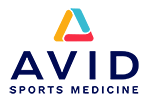Recovering from sports injuries requires more than just rest and basic treatment; it demands a personalized approach that addresses the unique needs of each athlete. Personalized sports medicine recovery programs are designed to optimize healing and enhance performance. These tailored plans incorporate advanced diagnostic tools, such as ultrasound-guided injections and shockwave therapy, ensuring precise treatment. By focusing on individual recovery needs, athletes achieve faster and more effective recovery. These programs integrate physical rehabilitation, nutritional counseling, and mental conditioning for comprehensive care, creating a holistic recovery experience.
Challenges Faced by Athletes During Recovery
Athletes often encounter various physical and psychological challenges during their recovery journey from sports injuries. Some of the common challenges include:
- Pain and Discomfort: Dealing with pain, stiffness, and limited mobility can be physically and emotionally taxing, impacting an athlete’s motivation and adherence to the recovery plan.
- Emotional Distress: Injuries can lead to feelings of frustration, anxiety, and depression, especially for athletes whose identity and self-worth are closely tied to their sport.
- Loss of Fitness and Skill: Prolonged inactivity due to injury can result in muscle atrophy, cardiovascular deconditioning, and skill regression, making returning to peak performance a daunting task.
- Fear of Re-Injury: Athletes may develop a fear of re-injuring themselves, leading to hesitation and cautiousness that can hinder their recovery progress.
- Time Constraints: The pressure to return to competition quickly can lead athletes to rush their recovery, increasing the risk of re-injury and incomplete healing.
Addressing these challenges requires an approach that includes not only physical rehabilitation but also psychological support and personalized guidance.
Understanding Personalized Sports Medicine Recovery Programs
Personalized recovery programs are specifically tailored to the unique needs and conditions of each athlete.
Comprehensive Assessment
The journey to optimal recovery begins with a thorough assessment. This initial evaluation includes a detailed medical history review, physical examination, and sometimes advanced imaging techniques. Understanding the athlete’s sport-specific demands and health goals is crucial in crafting a personalized plan.
Advanced Diagnostic Tools
Modern sports medicine leverages sophisticated diagnostic tools to accurately identify and monitor injuries. Techniques such as diagnostic ultrasound and MRI scans provide detailed images of soft tissues, helping to pinpoint the injury and guide precise treatment interventions.
Customized Treatment Plans
Based on the diagnosis, a bespoke treatment plan is formulated. This plan often combines various therapeutic approaches:
- Physical Therapy: Targeted exercises and manual therapies to restore mobility, strength, and function.
- Manual Therapies: Techniques such as massage, chiropractic adjustments, and joint mobilizations to alleviate pain and improve movement.
- Advanced Treatments: Options like ultrasound-guided injections and shockwave therapy to accelerate healing and address specific injury sites.
Focus on Individual Needs
Each athlete’s recovery journey is unique. Personalized programs are dynamic, adapting to the athlete’s progress and feedback. This individualized approach ensures that treatments are neither too aggressive nor too lenient, optimizing the recovery timeline.
By emphasizing individualized care, these recovery programs ensure that treatment is precisely aligned with the specific needs of the athlete, promoting effective healing and reducing the risk of re-injury.
Benefits of Personalized Recovery Programs
Personalized recovery programs offer numerous benefits that significantly enhance the recovery process for athletes. Some of the primary advantages include:
- Faster Recovery Times: Tailored treatments address specific injuries more precisely, reducing healing time and allowing athletes to return to their activities sooner.
- Reduced Risk of Re-Injury: By focusing on the unique aspects of each athlete’s condition, personalized programs help prevent future injuries through targeted therapies and preventive measures.
- Comprehensive Care: These programs integrate various aspects of an athlete’s health, including physical therapy, nutritional advice, and mental conditioning, creating a holistic approach to recovery.
- Enhanced Performance: Beyond just healing, personalized recovery programs aim to improve overall athletic performance. By addressing the root causes of injuries and optimizing physical condition, athletes can achieve higher levels of performance post-recovery.
- Adaptive Treatments: Personalized plans are flexible and can be adjusted based on the athlete’s progress and response to treatments, ensuring that the recovery process is dynamic and effective.
By providing individualized attention and care, personalized recovery programs help athletes not only recover from their injuries but also come back stronger, healthier, and better prepared to face the physical demands of their sport..
Achieve Optimal Recovery with Personalized Care
Personalized sports medicine recovery programs play a crucial role in helping athletes recover effectively and safely. By offering tailored treatments that address individual needs, Avid Sports Medicine programs ensure faster recovery times, reduce the risk of re-injury, and enhance overall athletic performance. The integration of physical rehabilitation, nutritional counseling, and mental conditioning provides a holistic approach to healing. Athletes in the San Francisco Bay Area looking to optimize their recovery and performance can benefit greatly from such individualized care. To start your personalized recovery journey, book an appointment with Avid Sports Medicine.

